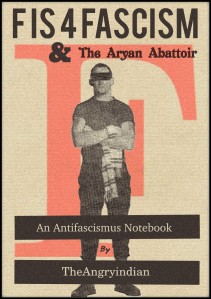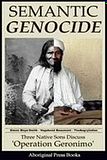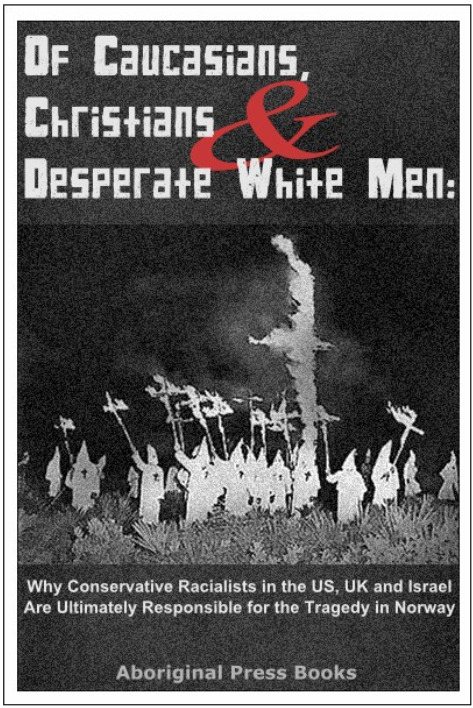–
Persecution of black people in Nazi Germany – Wikipedia – Even before World War I, Germany struggled with the idea of black Germans. While interracial marriage was legal under German law at the time, beginning in 1890, some colonial officials started refusing to register them, using eugenics arguments about the inferiority of mixed-race children to support their decision.[2] By 1912, this had become official policy in many German colonies, and a debate in the Reichstag over the legality of the interracial marriage bans ensued. A major concern brought up in debate was that mixed-race children born in such marriages would have German citizenship, and could therefore return to Germany with the same rights to vote, serve in the military, and hold public office as white Germans.[3]
After World War I, French occupation forces in the Rhineland included African colonial troops, some of whom fathered children with German women. Newspaper campaigns against the use of these troops focused on these children, dubbed “Rhineland bastards”, often with lurid stories of uncivilized African soldiers raping innocent German women. In the Rhineland itself, local opinion of the troops was very different, and the soldiers were described as “courteous and often popular”, possibly because French colonial soldiers harbored less ill-will towards Germans than war-weary French occupiers.[4] While subsequent discussions of Afro-German children revolved these “Rhineland Bastards”, in fact, only 400-600 children were born to such unions,[5] compared to a total black population of 20,000-25,000 in Germany at the time.[6]
In Mein Kampf, Hitler described children resulting from marriages to African occupation soldiers as a contamination of the white race “by Negro blood on the Rhine in the heart of Europe.”[7] He thought that “Jews were responsible for bringing Negroes into the Rhineland, with the ultimate idea of bastardizing the white race which they hate and thus lowering its cultural and political level so that the Jew might dominate.”[8] He also implied that this was a plot on the part of the French, since the population of France was being increasingly “negrified”.[9]
—
When a black German woman discovered her grandfather was the Nazi villain of ‘Schindler’s List’ – Jewish World Features – Haaretz – Israel News | Haaretz.com – She opens her book by describing the 2008 visit to a library in Hamburg to look for material on coping with depression. While there, she happened to notice a book with a cover photograph of a familiar figure: her biological mother, Monika Hertwig (née Goeth). She immediately withdrew the book, titled “I Have to Love My Father, Right?,” and which was based on an interview with her mother.
“The first shock was the sheer discovery of a book about my mother and my family, which had information about me and my identity that had been kept hidden from me,” Teege says. “I knew almost nothing about the life of my biological mother, nor did my adoptive family. I hoped to find answers to questions that had disturbed me and to the depression I had suffered from. The second shock was the information about my grandfather’s deeds.”
—
Blacks during the Holocaust – The fate of black people from 1933 to 1945 in Nazi Germany and in German-occupied territories ranged from isolation to persecution, sterilization, medical experimentation, incarceration, brutality, and murder. However, there was no systematic program for their elimination as there was for Jews and other groups.
After World War I, the Allies stripped Germany of its African colonies. The German military stationed in Africa (Schutztruppen), as well as missionaries, colonial bureaucrats, and settlers, returned to Germany and took with them their racist attitudes. Separation of whites and blacks was mandated by the Reichstag (German parliament), which enacted a law against mixed marriages in the African colonies.
Following World War I and the Treaty of Versailles (1919), the victorious Allies occupied the Rhineland in western Germany. The use of French colonial troops, some of whom were black, in these occupation forces exacerbated anti-black racism in Germany. Racist propaganda against black soldiers depicted them as rapists of German women and carriers of venereal and other diseases. The children of black soldiers and German women were called “Rhineland Bastards.” The Nazis, at the time a small political movement, viewed them as a threat to the purity of the Germanic race. In Mein Kampf (My Struggle), Hitler charged that “the Jews had brought the Negroes into the Rhineland with the clear aim of ruining the hated white race by the necessarily-resulting bastardization.”
—
Dark Secrets of Hitler’s Black Holocaust – One group of victims who have yet to be publicly memorialized is black Germans.
All those voices need to be heard, not only for the sake of the survivors, but because we need to see how varied the expressions of Nazi racism were if we are to understand the lessons of the Holocaust for today.
When Hitler came to power in 1933, there were understood to have been some thousands of black people living in Germany—they were never counted and estimates vary widely. At the heart of an emerging black community was a group of men from Germany’s own African colonies (which were lost under the peace treaty that ended World War I) and their German wives.
They were networked across Germany and abroad by ties of family and association and some were active in Communist and anti-racist organizations. Among the first acts of the Nazi regime was the suppression of black political activism. There were also 600 to 800 children fathered by French colonial soldiers—many, though not all, African—when the French army occupied the Rhineland as part of the peace settlement after 1919. French troops were withdrawn in 1930 and the Rhineland was demilitarized until Hitler stationed German units there in 1936.
—
To be Accurate:
—
 Persecution of black people in Nazi Germany – Wikipedia – In the armed forces — A number of blacks served in the Wehrmacht. The number of German blacks was low, but there were some instances where blacks were enlisted within Nazi organizations such as the Hitler Youth and later the Wehrmacht.[20] In addition, there was an influx of foreign volunteers during the African campaign, which led to the existence of a number of blacks in the Wehrmacht and SS in such units as the Free Arabian Legion.
Persecution of black people in Nazi Germany – Wikipedia – In the armed forces — A number of blacks served in the Wehrmacht. The number of German blacks was low, but there were some instances where blacks were enlisted within Nazi organizations such as the Hitler Youth and later the Wehrmacht.[20] In addition, there was an influx of foreign volunteers during the African campaign, which led to the existence of a number of blacks in the Wehrmacht and SS in such units as the Free Arabian Legion.
—
Free Arabian Legion – Wikipedia – Free Arabian Legion (جيش بلاد العرب الحرة) was a Nazi German military unit formed from Arab volunteers from the Middle East and North Africa during World War II.
 It was created by Amin al-Husseini and Rashid Ali when they suggested the formation of an army of Arab volunteers, which was adopted by Adolf Hitler in 1941. The unit was based on a smaller force, commanded by Hellmuth Felmy, mainly to assist the Pro-Nazi revolt in Iraq which was suppressed by the British. The unit was first settled in Syria and included several Iraqi expatriates, and Syrian Arabs. After the conquest of Syria by the British and Free-French forces, the unit was moved to Sounion in Greece. There it received more Arab and Muslim troops who were on the soil of Europe at the time, as prisoners of war, or as volunteers.
It was created by Amin al-Husseini and Rashid Ali when they suggested the formation of an army of Arab volunteers, which was adopted by Adolf Hitler in 1941. The unit was based on a smaller force, commanded by Hellmuth Felmy, mainly to assist the Pro-Nazi revolt in Iraq which was suppressed by the British. The unit was first settled in Syria and included several Iraqi expatriates, and Syrian Arabs. After the conquest of Syria by the British and Free-French forces, the unit was moved to Sounion in Greece. There it received more Arab and Muslim troops who were on the soil of Europe at the time, as prisoners of war, or as volunteers.
The Nazis planned to use the legion in conquering the Caucasus, rising an Iraq government-in-exile there, and then use the region as a force station and base for a way of conquering Iraq (an end that was never taken).
In Operation Torch the Allies took Tunisia, which had been governed by Vichy France. During the fighting the German command called on Tunisian Arabs to join the Legion.
After the death of its commander[who?], the Legion was taken out from the Front, and in the November 1943 the Legion served in Peloponnese as part of the forces involved in the Axis occupation of Greece (as part of the 41st Infantry Division) and participated in the suppression of the Greek anti-fascist insurrection.






















Although there are some differences, the children who were called “Rhineland Bastards,” reminded me “Lebensborn children”. Thank you for sharing us this writing.